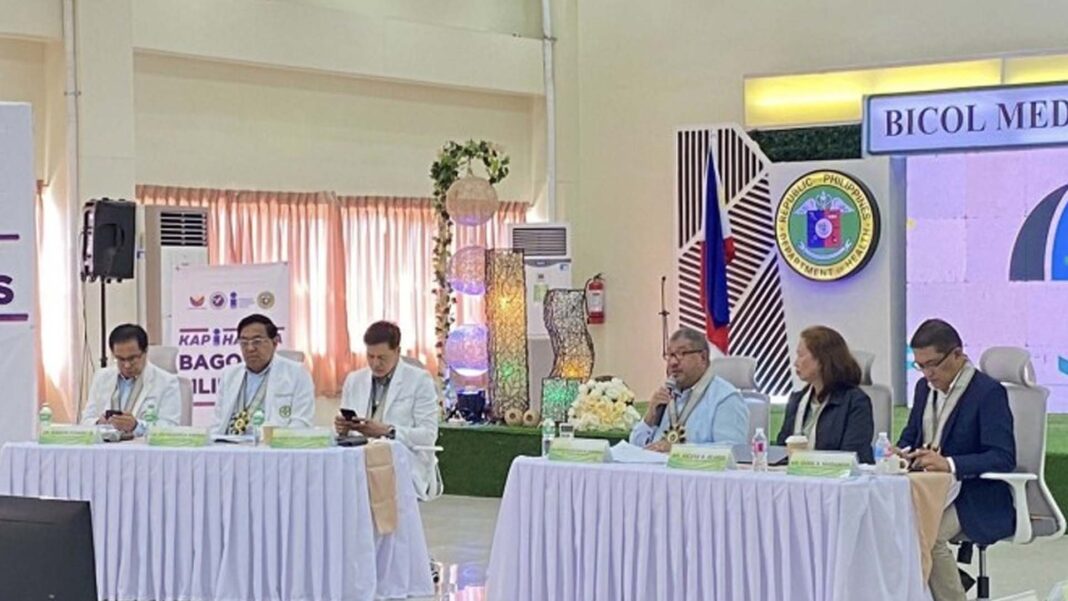The Department of Health-Center for Health Development in Bicol (DOH CHD-5) reported a high treatment success rate for tuberculosis (TB) cases for the first quarter of 2024.
During Tuesday’s “Kapihan sa Bagong Pilipinas” briefing held at Bicol Medical Center in Naga City, DOH-Bicol officer in charge Regional Director Dr. Rodolfo Antonio Albornoz said data from the Infectious Disease Cluster showed out of 7,008 drug-sensitive TB cases, there was a 92 percent treatment success rate.
“Stock transfers to facilities and timely allocation of TB medicines continue with the help of DOH pharmacists,” he said.
Albornoz said the department is implementing the 8-point health action agenda for the Universal Health Care in the Bicol Region, where TB is included.
“This is an important guide for achieving Universal Health Care in the Bicol Region, where our countrymen have access to quality and competent health services, especially in the eight priority health outcomes,” he added.
He was referring to TB/ human immunodeficiency virus (HIV), immunization, WASH (water, sanitation, and hygiene), road safety, hypertension and diabetes, cancer, nutrition and maternal health.
Albornoz noted that recently, the health agency received a fully equipped mobile van that would help the DOH screen and diagnose TB and other lung and respiratory diseases in the six provinces.
The mobile van is equipped with an X-ray machine, electrocardiogram (ECG) machine, refrigerator for sputum collection, hand washing area and fire extinguisher.
TB is an infectious disease that most often affects the lungs and is caused by a type of bacteria. It spreads through the air when infected people cough, sneeze, or spit. It is preventable and curable.
For persons living with HIV, DOH Bicol recorded 64 percent or 1,738 receiving antiretroviral therapy.
“The DOH Bicol will have an additional three treatment hubs that will be built this year at Camarines Norte Provincial Hospital, Eastern Bicol Medical Center in Catanduanes and Sorsogon Provincial Hospital,” Albornoz said.
He added that they continue to provide testing kits to the provincial health offices for hospitals and local government units.
“Symposiums and other promotions are also being conducted to further expand knowledge on HIV,” he said. (PNA)



